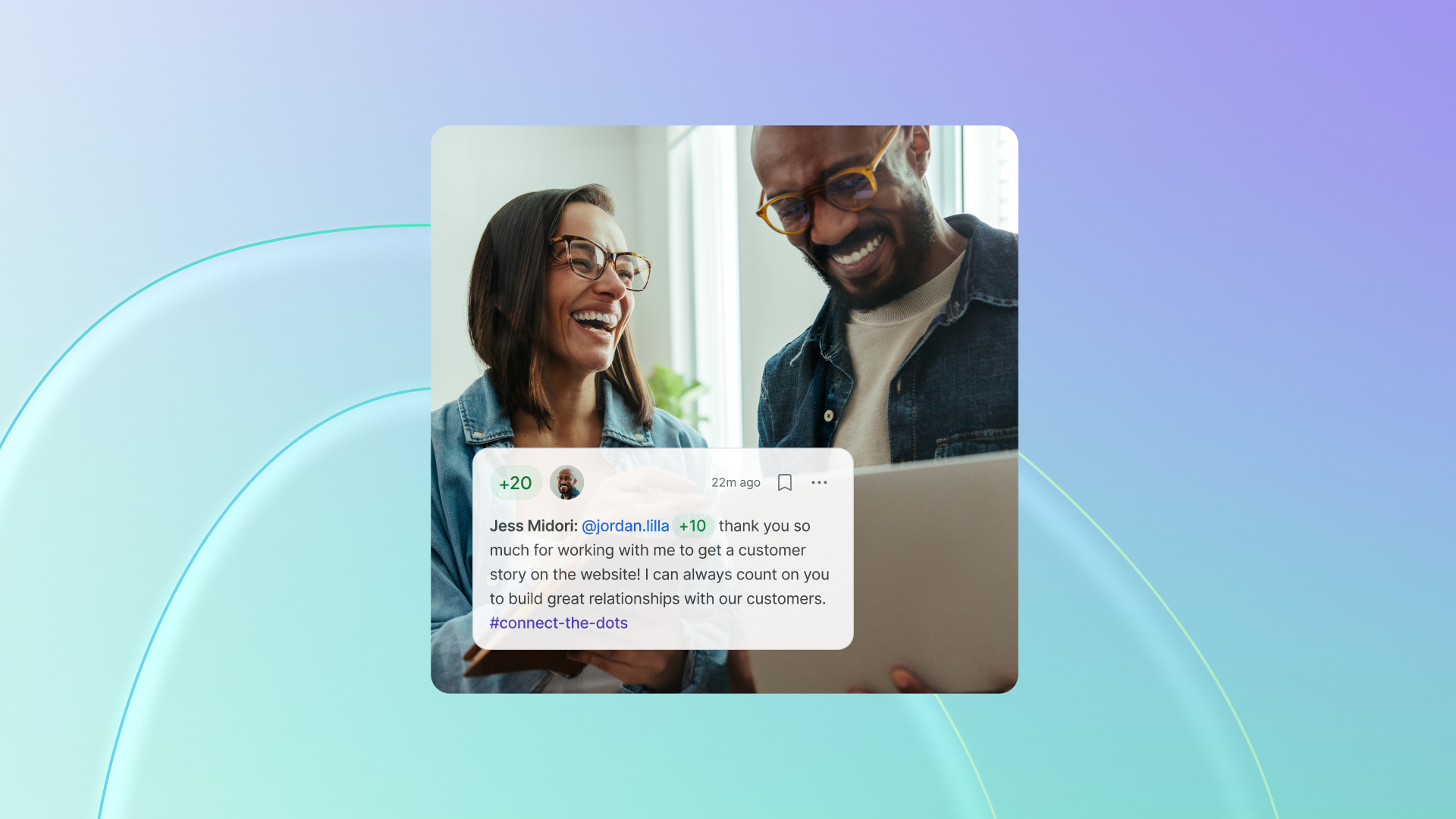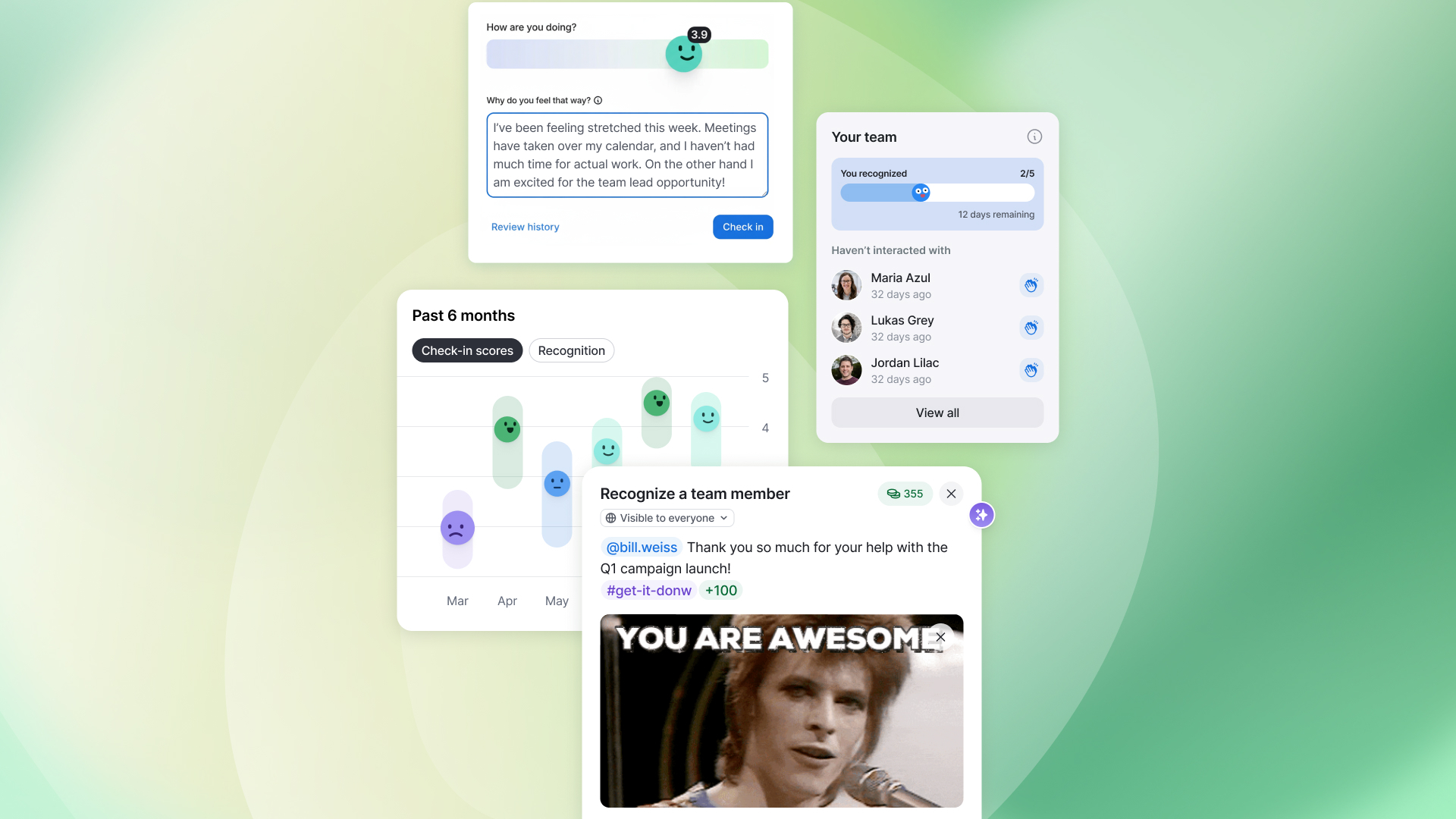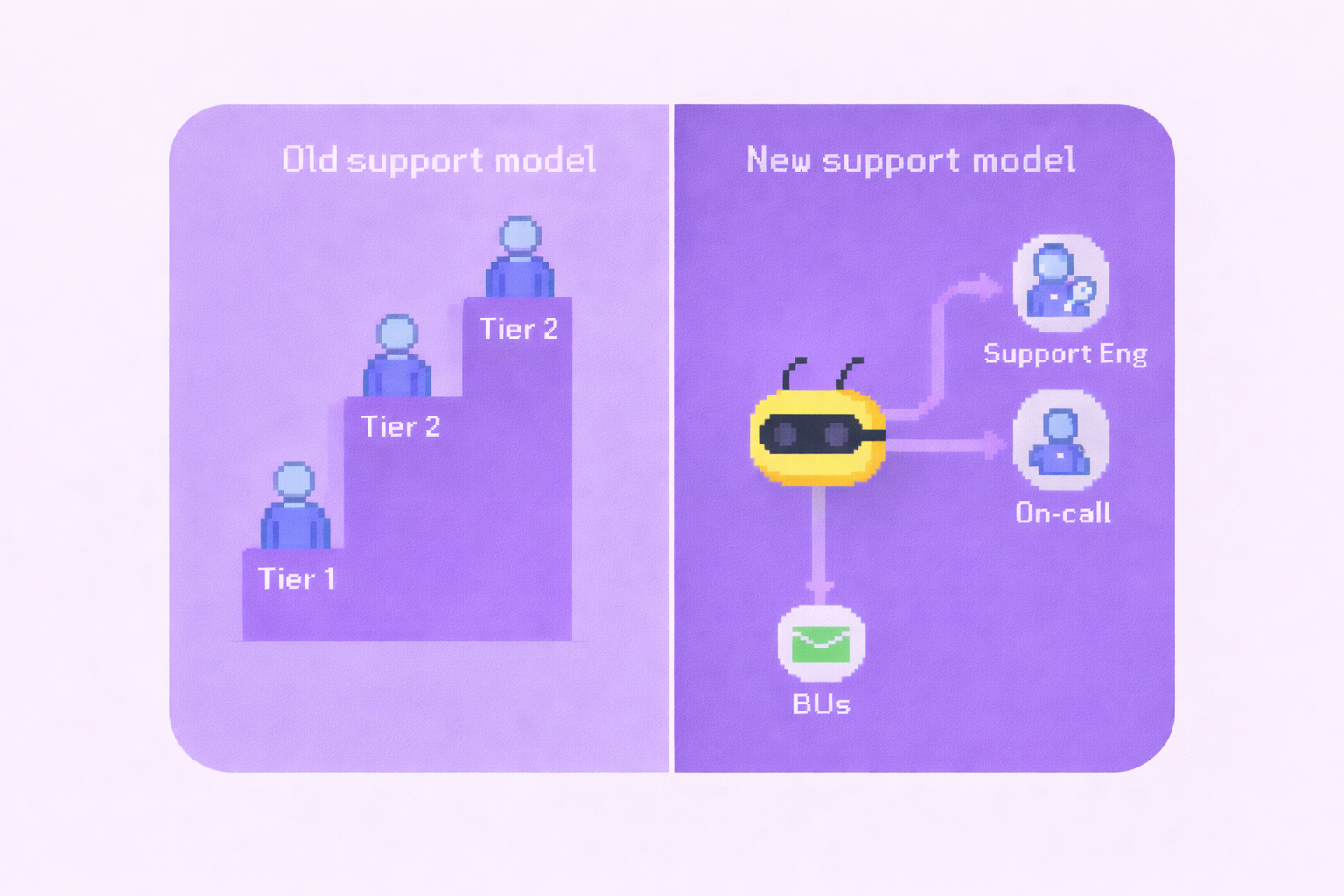How Pulse Checks Work at Bonusly
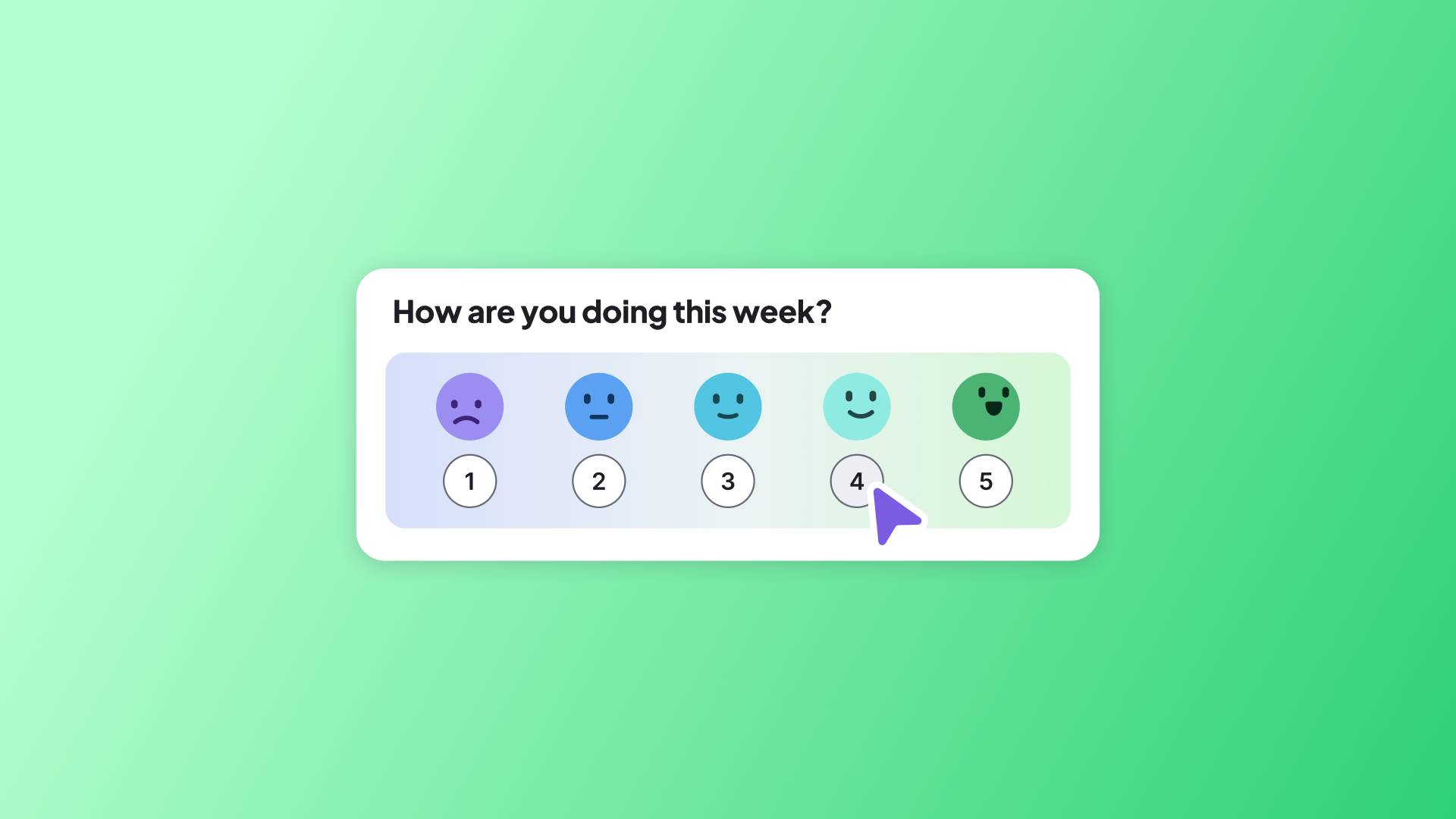
In most organizations, engagement insights arrive too late to make a difference. Annual surveys and quarterly reports can highlight what's working and what needs attention, but by the time you see the data, the moment to act has already passed.
Work moves fast. People need tools that move with them.
That's why Bonusly built pulse checks: simple, regular check-ins that help managers and employees stay connected in real time. Let's break it down.
Why pulse checks matter
The best managers already know how their teams are doing. They pick up on the signals, ask the right questions, and stay tuned in.
Pulse checks give leaders real-time visibility into how their teams feel, what they need, and where they're thriving. They make it easy to spot early signals of burnout or disengagement before they grow into bigger issues that lead to poor performance or turnover.
With that insight, managers can:
- Start better 1:1s with context that actually matters
- Recognize wins that might otherwise go unnoticed
- Act quickly to support employees who need help
- Build trust by showing that feedback is heard and acted on
In short, pulse checks make it easier for managers to lead like people leaders. And when managers lead better, teams perform better.
For organizations, this means employee feedback becomes a continuous loop of action and support—a living signal of culture and performance.
What are pulse checks?
Pulse checks are lightweight, in-the-flow check-ins that capture quick, consistent signals from employees about how they're feeling and what they need. They're simple surveys that take just a few seconds to complete but can reveal a lot about individual workload and team engagement.
When managers and HR teams work together, pulse checks become an early warning system for disengagement and burnout, and a powerful way to ensure no employee slips through the cracks.
Pulse checks deliver a steady stream of feedback that makes it easy for managers to get a pulse on employees and support them before issues grow.
Each check-in includes two key components:
1. A score: A quick quantitative rating (for example, "How are you doing this week?") that lets you track changes over time.
2. An optional "why": A qualitative response that adds valuable context and helps managers understand the story behind the score.
When you combine both, you get a richer and more human picture of what's happening inside your team.
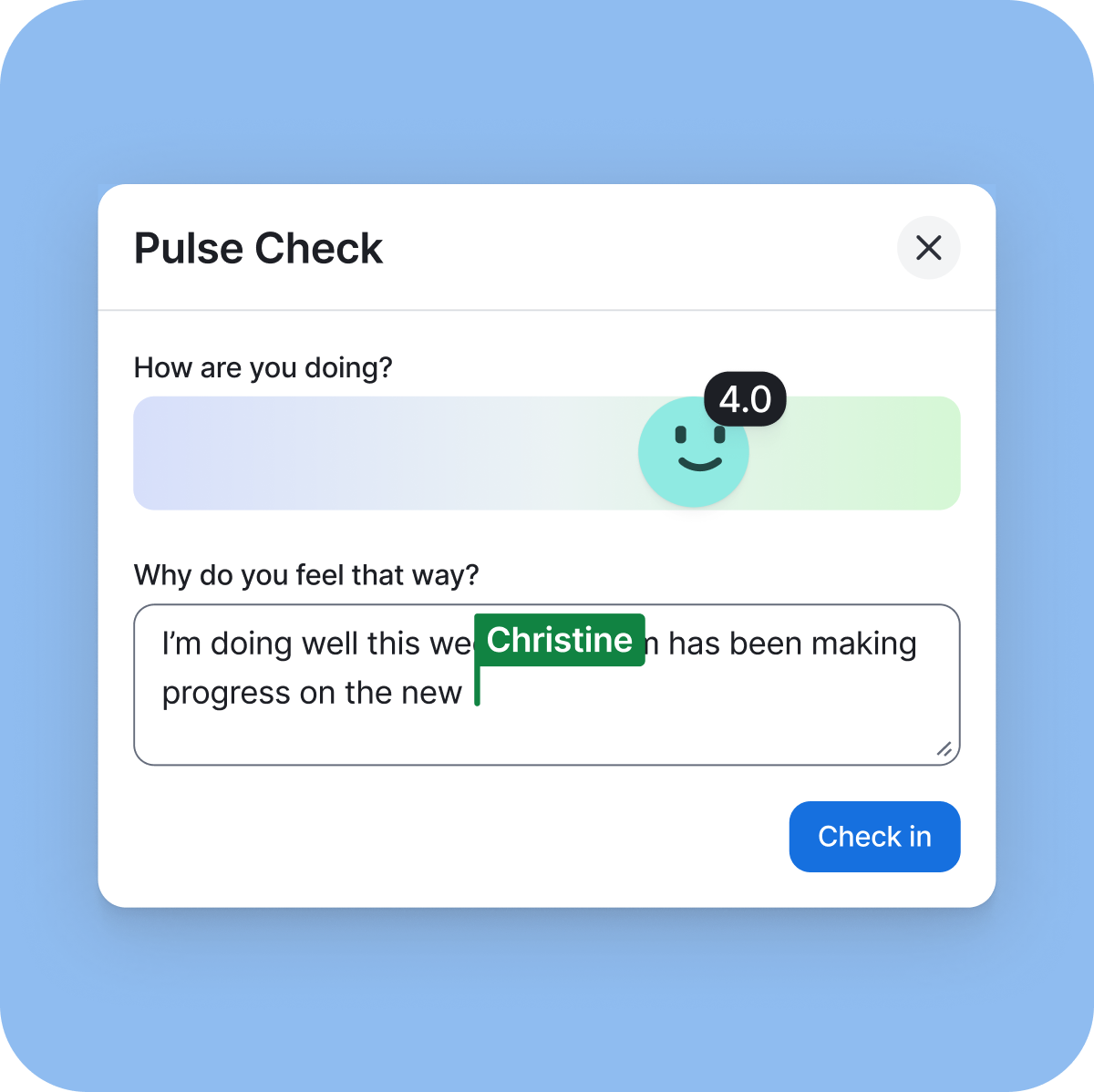
How pulse checks fit into everyday work
Bonusly pulse checks meet people where they already are. Employees can respond directly in Slack, Microsoft Teams, or the Bonusly app, so feedback becomes a natural part of how teams communicate.
For managers, that feedback automatically appears in several connected places:
1. The Bonusly feed, where responses show up alongside recognition activity, helping leaders see engagement and recognition side by side.
2. The 1:1 tool, where check-in data is visible during manager-employee conversations, providing real-time context for coaching.
3. Team Hub & Insights, where managers can track sentiment trends and overall team health.
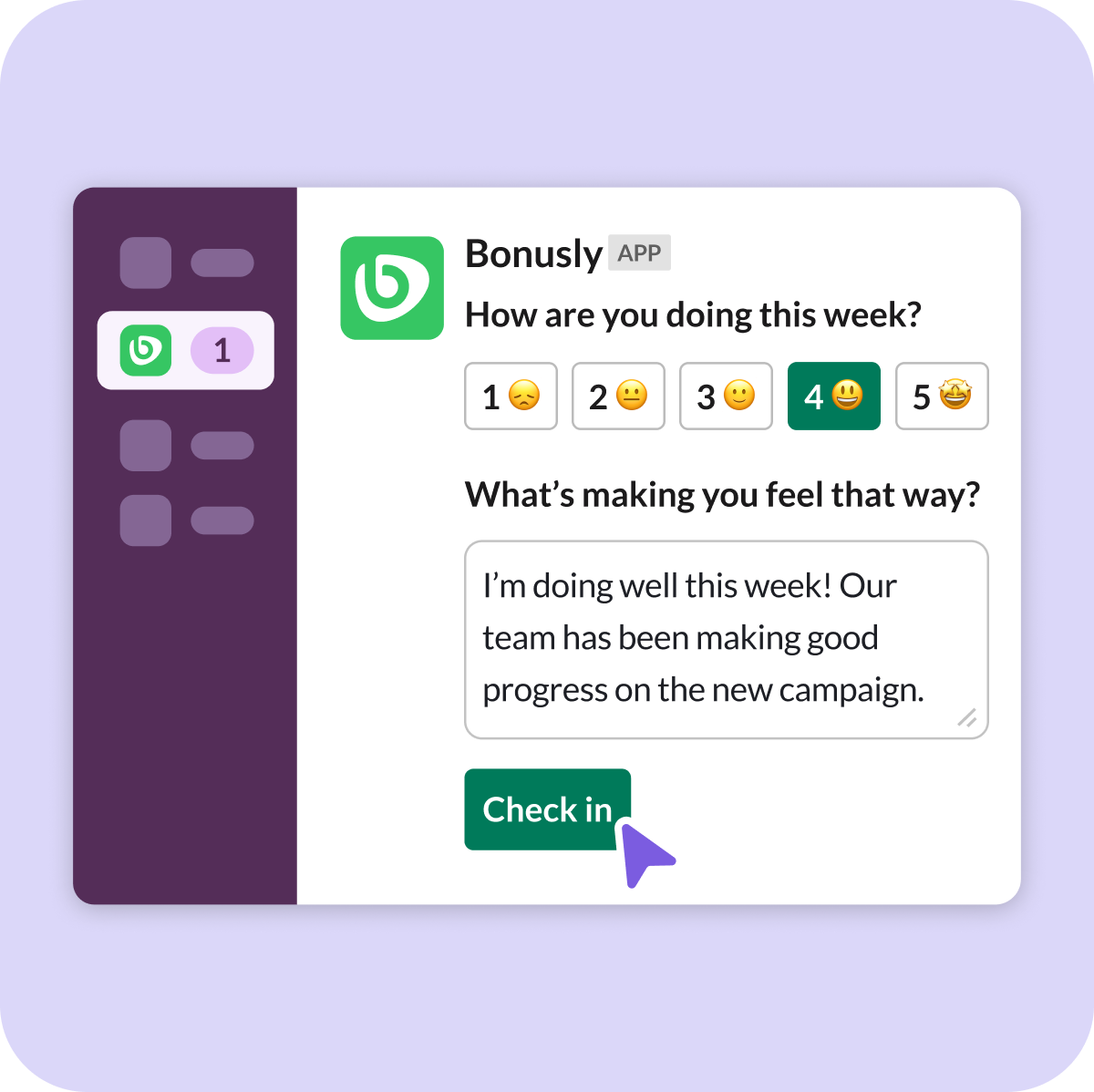
A partnership between People teams and managers
We know that new tools like pulse checks can raise important questions about visibility and accountability. Many HR teams want to ensure managers have the right training and support to respond to feedback appropriately. That's a good thing.
Pulse checks are designed to elevate HR's role. For years, HR has been the champion of recognition and engagement. With manager-centric tools like pulse checks, that influence expands. HR gets to empower managers to act on real-time feedback while still maintaining general visibility into the health and trends of every team.
Here's how it could work in practice:
- HR provides the guidance that helps managers use pulse checks effectively.
- Managers get the insights and autonomy to support their teams more personally and proactively.
- HR still sees the big picture (how sentiment is trending, which teams may need extra support, and where culture is thriving) while gaining more partners in keeping engagement strong.
The shared goal hasn't changed: stronger teams, better recognition, and more connected, human workplaces. We're just expanding who gets to impact those outcomes and giving HR the tools to lead that evolution with confidence.

The takeaway
At Bonusly, we believe great teams are built on everyday habits: recognizing, connecting, checking in, and growing together.
Pulse checks make that simple by turning feedback into a daily signal that helps managers lead with empathy while HR stays informed. Best of all, employees feel supported to do their best work.




